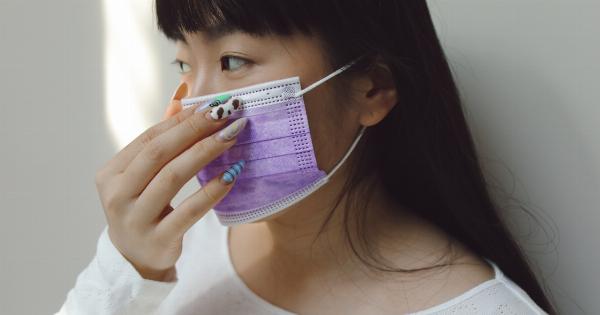Keratitis is an inflammation of the cornea, which can cause pain, itching, redness, and irritation in the eye. Keratitis can be caused by a variety of factors, including bacteria, viruses, fungi, and contact lens wear.
If you wear contact lenses, it is essential to take steps to prevent keratitis. Here are 10 tips for preventing keratitis when wearing contact lenses:.
1. Wash Your Hands Before and After Handling Your Lenses
Your hands carry bacteria that can cause keratitis. Before you insert or remove your lenses, wash your hands with soap and water and dry them with a clean towel.
Make sure you wash your hands thoroughly and don’t skip any areas, including the palms, back, and fingertips. Repeat the same process after handling your lenses to avoid contamination of the lens case and lens solution.
2. Replace Your Contact Lenses Regularly
Over time, contact lenses can accumulate bacteria, dirt, and other substances that can irritate your eyes and increase your risk of keratitis. Replace your lenses as often as instructed by your eye doctor.
Never sleep in your contact lenses unless they are specifically designed for extended wear, and always follow your optometrist’s instructions regarding ocular hygiene, such as lens cleaning, storage, and replacement.
3. Use Clean Contact Lens Solution
Reuse of contact lens solution is a major risk factor for keratitis. Always use a fresh batch of contact lens solution each time you store your lenses. Pour out the used solution from the lens case and then refill the case with fresh cold solution.
Never use water or saliva to clean or wash your lenses or lens case, even in an emergency.
4. Store Your Contact Lenses Properly
Storing your contact lenses properly can help prevent infections caused by bacteria and other microorganisms. Always use an airtight and well-ventilated case to store your contact lenses.
Make sure the container is cleaned properly with lens cleaning solution or soapy water and let it air dry with the cap off every day. When traveling, carry a spare lens case and solution to avoid contamination of the lens.
5. Never Share Your Contact Lenses or Lens Case
Sharing contact lenses or a lens case with someone else is a recipe for disaster and increases your risk of keratitis. Always use your personal contact lenses and lens case and never lend them or borrow them from someone else.
6. Handle Your Contact Lenses Carefully
Your contact lenses are delicate and can easily tear or break. Handle them with care to avoid damage. Be gentle when inserting or removing your lenses. Also, avoid contact with sharp objects like hairpins or tweezers that can damage the lenses.
7. Avoid Contact with Water
When wearing contact lenses, it is important to avoid all kinds of water contact, including swimming pools, hot tubs, oceans, and lakes. Water harbours several microorganisms, including bacteria, viruses, parasites, and fungi, which can cause keratitis.
Avoid wearing your lenses while washing your face, taking a shower, or participating in water sports, as water can splash into your eyes and lenses.
8. Schedule Regular Eye Exams with Your Optometrist
Regular eye exams can help detect any changes in your eyes and alert you to any potential eye problems, including keratitis. Visit your optometrist at least once a year for a comprehensive eye examination.
Follow your eye doctor’s instructions for good ocular hygiene and managing any underlying health conditions that can contribute to keratitis.
9. Monitor Your Eye Health
Be aware of any changes in your eyes and avoid wearing contact lenses if you experience any symptoms. These can include itching, redness, irritation, discharge, and excessive tearing.
If you experience any of these symptoms, contact your optometrist immediately. Also, check your eyes regularly in front of the mirror before and after inserting or removing your lenses.
10. Educate Yourself on Proper Contact Lens Use
Proper education on wearing and maintaining contact lenses is crucial to prevent keratitis. Follow your eye doctor’s instructions and any wearing guidelines included with the lenses. Learn how to insert, remove, and clean your lenses properly.
Ask your optometrist if you have any concerns or questions regarding your contact lenses.
Conclusion
Keratitis can cause serious complications, including vision loss, if left untreated. Follow these tips to help prevent keratitis when wearing contact lenses.
By doing so, you can maintain good ocular hygiene and ensure that your contact lenses are comfortable and safe.



























